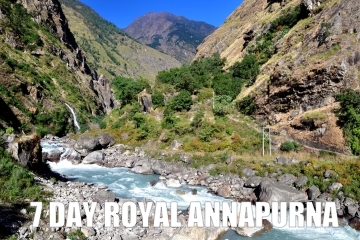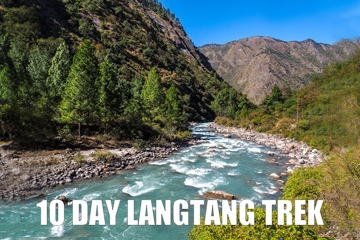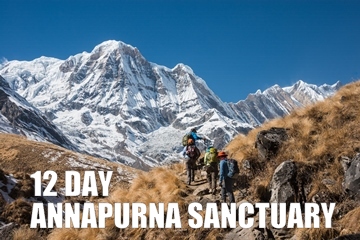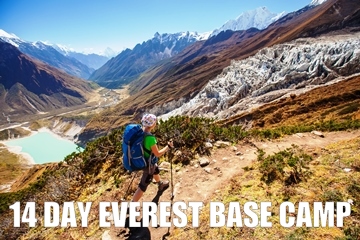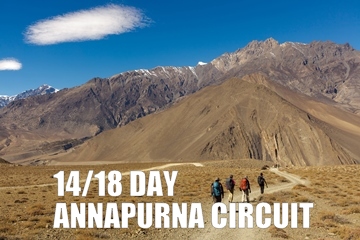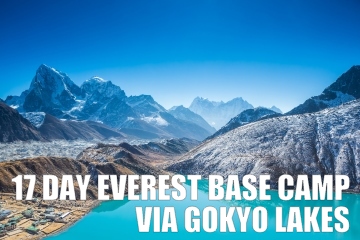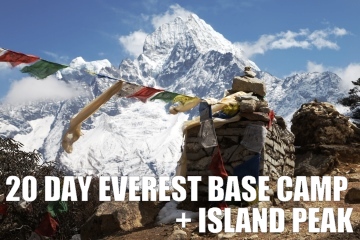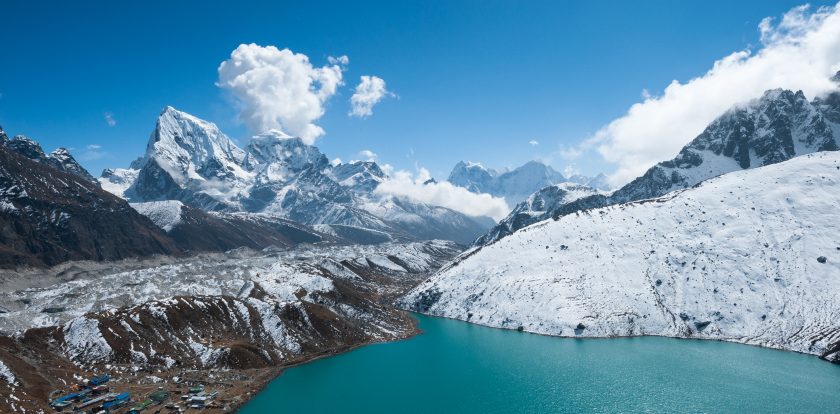
COUNTRY OVERVIEW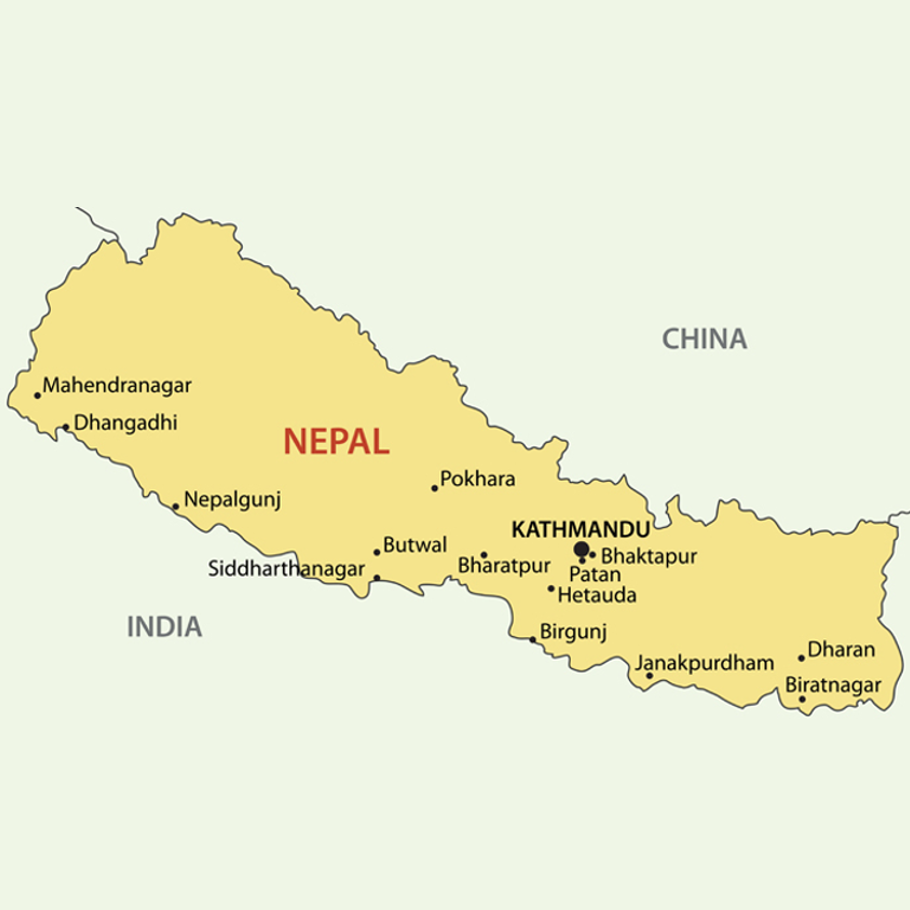
Isolated against the backdrop of the majestic Himalayan mountain range, Nepal enjoys a grand setting with an extraordinary landscape. Boasting some of the tallest mountain peaks in the world, including the world famous Mount Everest, Nepal is a haven of natural beauty.
The impressive Himalayan Mountains present the perfect opportunity to beginner and expert mountaineers. From easy hikes to the toughest peaks, Nepal has everything to offer its visitors. An untouched panorama brimming with challenging mountain terrains, droves of Buddhist temples, spiritual mysticism and sacred regions give Nepal its ubiquitous charm, allowing visitors to enjoy this spectacular country in all its glory.
Nepal's capital Kathmandu is decorated with stunning temples, markets and palaces. Ethnic museums, monasteries and temples can also be found at Pokhara, Patan and Bodnath, allowing visitors to immerse in the unique culture of this unique country.
NEPAL TRIPS
Learn everything you need to know about trekking Nepal on our sister site - ULTIMATE EVERESTKathmandu, Mount Everest
ENTRY REQUIREMENTS
To enter Nepal, most nationalities must hold a valid passport, with at least six months beyond your proposed date of your trip. US citizens, as well as citizens of the UK, Canada, Australia, and other European Union nations must have passports. If you do not have a passport, apply for one as soon as possible this process can take 4-6 weeks.
It is possible to apply for a Nepalese visa in the United State of America through the Nepalese Embassy. However, we recommend obtaining a visa upon arrival at Tribhuvan International Airport. You must fill in a flight arrival card and a visa application form, as shown below. A passport photograph is required. Arrival cards and visa application forms are available at several tables in the arrivals hall, though some airlines provide the forms on the flight. Once you have completed the forms, follow the sign that states "WITHOUT VISA" to obtain your visa. The process can take up to an hour, depending on how many people are there.
You can pay for your visa in US Dollars, British Pounds, Euros, Australian Dollars, Canadian Dollars, and several other currencies. Credit cards are not accepted. Current visa fees are:
Days Fee
15 $25.00
30 $40.00
90 $100.00
If you wish to extend your visa you need to contact Nepalese Department of Immigration at Kalikasthan, Kathmandu (Tel: +977 1 4429659); (Fax: +977 14433935). Overstaying without authority is serious violation and you can be detained or refused permission to leave until a fine is paid.
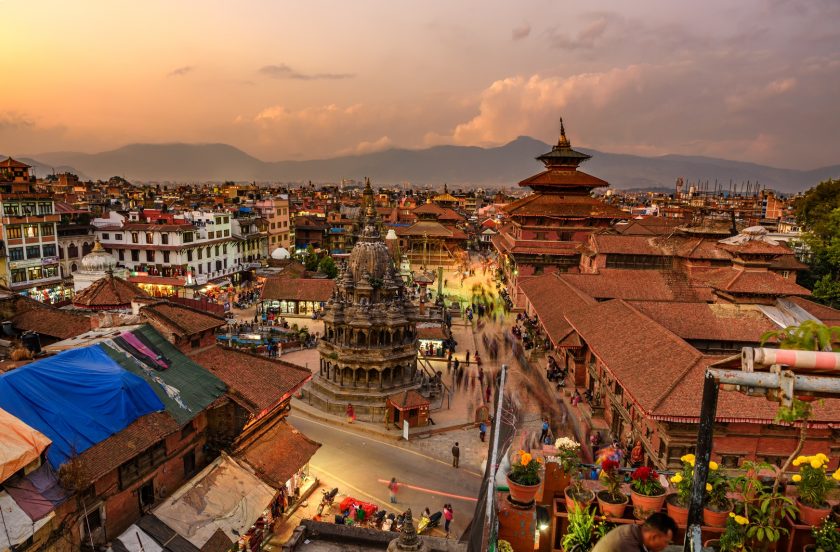
VACCINATIONS
The following vaccines are recommended for your travel to Nepal. Discuss your travel plans and personal health with a health-care provider to determine which vaccines you will need.
Hepatitis A - Recommended for everyone.
Typhoid - Recommended for everyone.
Polio - One-time booster recommended for any adult traveler.
Yellow Fever - Required for everyone arriving from a yellow-fever-infected area.
Hepatitis B - Recommended for everyone.
Measles, mumps, rubella (MMR) - Two doses recommended for everyone born after 1956, if not previously given.
Tetanus-Diphtheria - Revaccination recommended every 10 years.
Japanese Encephalitis - You may need this vaccine if your trip will last more than a month, depending on where you are going in Nepal and what time of year you are traveling.
Rabies - Only necessary if visiting lowland areas like Chitwan.
Malaria - traveling in Nepal, you should avoid mosquito bites to prevent malaria. You may need to take prescription medicine before, during, and after your trip to prevent malaria. Talk to your doctor about how you can prevent malaria while traveling.
WEATHER
Average temperatures in Kathmandu, Nepal.| Month | Jan | Feb | Mar | Apr | May | Jun | Jul | Aug | Sep | Oct | Nov | Dec |
|---|---|---|---|---|---|---|---|---|---|---|---|---|
| Average High (F) | 60 | 63 | 70 | 77 | 79 | 80 | 79 | 79 | 78 | 74 | 68 | 61 |
| Average Low (F) | 40 | 44 | 50 | 57 | 63 | 69 | 70 | 70 | 67 | 59 | 49 | 42 |
BEST TIME TO VISIT
It is possible to visit Nepal year round, but spring (March - May) and autumn (September - November) are the two most favorable seasons for trekking.
March, April and May (Spring)
These months are considered to be the best in terms of weather and beauty, they are also the busiest months. Days are warm with an occasional rain shower that invites an array of blooming wildflowers, displaying vibrant colors on a lush backdrop. Hikers say it’s the most pleasant time to trek.
June, July and August (Monsoon)
The monsoon season brings severe rains making the certain routes impassable. Lodges and trekking operations in some areas are closed during this time. However, there are options for trekking in the Western mountains around Annapurna and Manaslu as large parts of these treks lie in a rain-shadow and receive significantly less precipitation than the more southerly areas.
Mid-September – November (Autumn)
The weather is dry and skies are generally clear, with mild to warm days and cold nights. Nights can easily drop to below zero freezing temperatures.
November – February (Winter)
Generally dry with daytime temperatures cooler and very cold nights. The days are typically clear with occasional winter storms that can bring snow to as low as 2,500 m (8,202 ft). Trekking during this mid-winter season can be more challenging in the high altitudes with winter storms and snowfall.
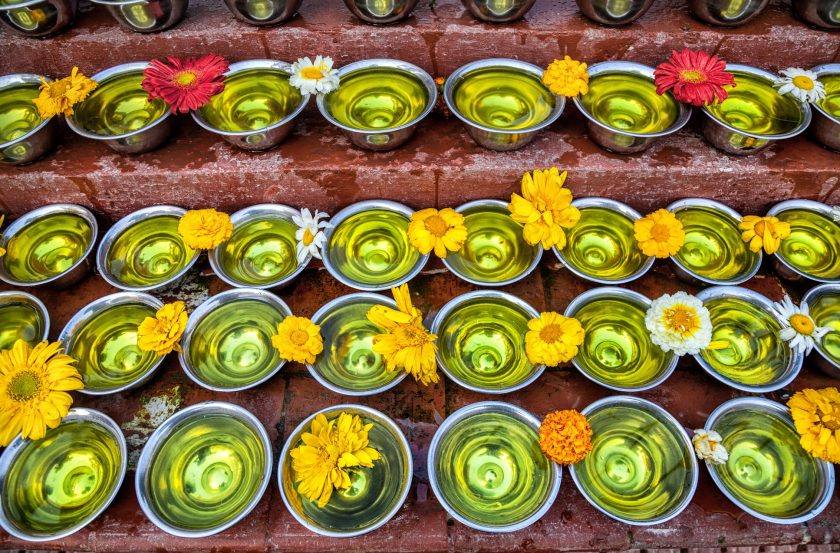
TRAVEL ADVISORIES
Make two photocopies of valuables such as your passport, tickets, visas and travelers' cheques. Keep one copy with you in a separate place to the original and leave another copy with someone at home.
Be sure to inform your credit card company as well as your bank you will travel internationally into Nepal. This will eliminate any credit card holds for fraudulent activity.
CURRENCY
The best places to exchange money is in Kathmandu. Local currency is the Nepalese Rupee, however some establishment do accept USD. Better hotels, lodges, and camps will accept credit cards. It is advised to carry local currency when visiting remote areas and villages.
GOVERNMENT
The politics of Nepal function within a framework of a republic, with a multi-party system.
RELIGION
Citizens of Nepal identify themselves with Hinduism 81.3%, Buddhism 9%, Islam 4.4%, Kirat 3.1% and other 2.2% 
